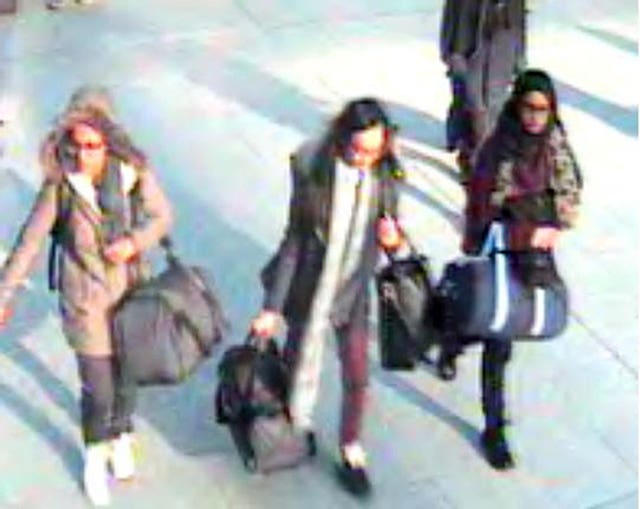Begum loses first stage of legal challenge to stripping of British citizenship
Former home secretary Sajid Javid stripped her of her British citizenship a year ago.

Shamima Begum – one of three east London schoolgirls who travelled to Syria to join so-called Islamic State – has lost the first stage of a legal challenge against the decision to revoke her British citizenship.
Ms Begum, now 20, left the UK in February 2015 and lived under IS rule for more than three years. She was found, nine months pregnant, in a Syrian refugee camp in February last year.
Former home secretary Sajid Javid stripped her of her British citizenship later that month, a decision Ms Begum’s lawyers argued was unlawful as it rendered her stateless. Such a decision is lawful only if an individual is entitled to citizenship of another country.
Last year, Ms Begum took legal action against the Home Office at the High Court and the Special Immigration Appeals Commission (SIAC), a specialist tribunal which hears challenges to decisions to remove someone’s British citizenship on national security grounds.
The tribunal, led by SIAC president Mrs Justice Elisabeth Laing, ruled on Friday that the decision to revoke Ms Begum’s British citizenship did not render her stateless.
Judge Doron Blum, announcing the decision of the tribunal, said the move did not breach the Home Office’s “extraterritorial human rights policy by exposing Ms Begum to a real risk of death or inhuman or degrading treatment”.
He added that, while Ms Begum “cannot have an effective appeal in her current circumstances”, it “does not follow that her appeal succeeds” on that ground.

But, in its judgment, the tribunal ruled that, at the time Ms Begum’s British citizenship was revoked, she was “a citizen of Bangladesh by descent” and was therefore not rendered stateless.
Mr Hickman had also argued that the decision “had the effect – and was designed – to prevent” Ms Begum from returning to the UK, leaving her “abandoned” in a detention camp.
This, he added, meant Ms Begum “cannot have a fair and effective appeal” as she is unable to speak confidentially with her lawyers or to give evidence in support of her appeal.
The tribunal accepted that “in her current circumstances, the appellant cannot play any meaningful part in her appeal and that, to that extent, the appeal will not be fair and effective”.
But the tribunal added: “We cannot accept, without investigation, the assumption, apparently made by the appellant’s representatives, that if she cannot have a fair and effective appeal her appeal must succeed.”
Ms Begum’s lawyers had claimed that the “wretched and squalid” conditions in al-Roj – and in the al-Hawl camp from which Ms Begum was moved for her own safety in February – breached her human rights.
The tribunal found that “conditions in the al-Roj camp would breach the appellant’s rights under Article 3” of the European Convention on Human Rights, which protects the right to freedom from inhuman or degrading treatment.
But it said the decision did not breach the Home Office’s policy on the extraterritorial application of human rights.
The tribunal added: “The appellant was in that situation as a result of her own choices, and of the actions of others, but not because of anything the Secretary of State had done.”
In a statement after the ruling, a Home Office spokeswoman said: “The Government welcomes the judgment of the Special Immigration Appeals Commission on these preliminary issues.
“It would be inappropriate to comment further whilst legal proceedings are ongoing.”
Ms Begum, then aged 15, was one of three schoolgirls from Bethnal Green Academy who left their homes and families to join IS, shortly after Sharmeena Begum – who is no relation – travelled to Syria in December 2014.
Kadiza Sultana and Amira Abase, then 16 and 15 respectively, and Ms Begum boarded a flight from Gatwick Airport to Istanbul, Turkey, on February 17 2015, before making their way to Raqqa in Syria.
Ms Begum claims she married Dutch convert Yago Riedijk 10 days after arriving in IS territory, with all three of her schoolfriends also reportedly marrying foreign IS fighters.
She told the Times last February that she left Raqqa in January 2017 with her husband but her children, a one-year-old girl and a three-month-old boy, had both since died.
Her third child died shortly after he was born.





